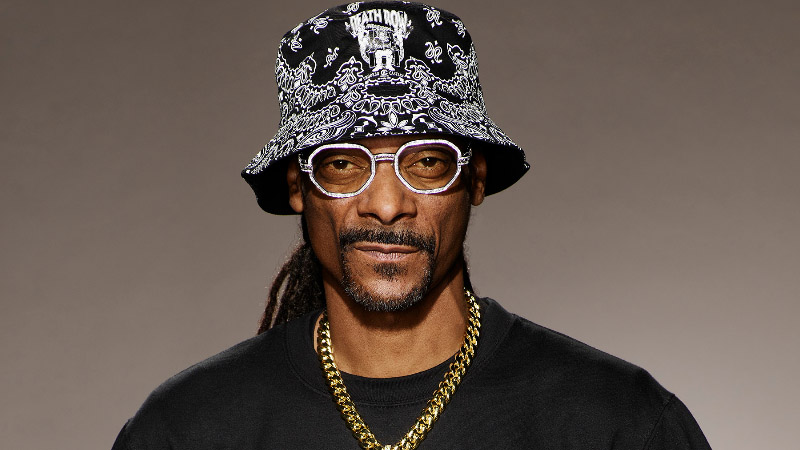This isn’t the first time Bill Gates has damaged his reputation

(Getty)
Over the past few weeks, The Daily Beast offered more details about Gates’ relationship with convicted sex offender Jeffrey Epstein, and his soon-to-be former wife’s discomfort with it. The New York Times reported on Gates’ alleged habit of coming onto women who worked for him, which “at times created an uncomfortable workplace environment.” And the Wall Street Journal found that Gates resigned from the Microsoft board in 2020 as the board was conducting an investigation into whether he had an inappropriate relationship starting years earlier with a Microsoft engineer. (Gates’ spokesperson acknowledged the affair, but claimed that it was unrelated to his stepping down.)
There may be more revelations to come. Already, headlines are claiming that Gates’ “likable, nerdy do-gooder” image is falling apart.
But it’s worth remembering that the tech titan wasn’t always known as a cozy-sweater-wearing, book-recommending mensch. While in recent years Gates was largely associated with his philanthropic work with the Bill and Melinda Gates Foundation, in the 1990s, popular opinion held that he was a greedy, monopolistic copycat.
Bill Gates: Monopoly man
Gates co-founded Microsoft in 1975 with his childhood friend Paul Allen, and dropped out of Harvard to focus on the business. By 1987, at age 31, he was the world’s youngest billionaire.
With Microsoft’s stratospheric success and Gates’ growing riches came increased scrutiny. As NPR notes, by the late 1990s, “many techies saw Gates as the embodiment of corporate evil.”
Mac enthusiasts, for example, saw Gates and Microsoft as the antithesis of the free-spirited, idealistic Apple. A 1997 story in Time magazine noted that Gates was regarded among Mac enthusiasts as a “dweeb Darth Vader, the billionaire bad guy who usurped the idea of the Macintosh’s friendly point-and-click operating system for his now dominant Microsoft Windows.”
But it wasn’t just acolytes of Steve Jobs who were concerned by Microsoft’s dominance in the computing world. In an oral history of the US Department of Justice’s 1998 antitrust lawsuit against Microsoft, Jon Mittelhauser, a founding engineer of Microsoft competitor-turned-roadkill Netscape, tells The Ringer:
There was this long history of the first word processor that got traction was WordPerfect, and it got killed by Microsoft Word. And the first spreadsheet was Lotus and it pretty much got killed by Microsoft Excel. Any company that was successful that was doing software basically had two options — one was Microsoft copied what you did and did it better and got a business, [or] two was you got bought by Microsoft. They were the 800-pound gorilla.The view of Gates as a smash-and-grab tech titan was captured in the 1998 Simpsons episode “Da Bus,” in which Gates appears with a choppy bowl haircut to tell Homer that he’s buying out his online business rather than risk competing with him. Homer is thrilled at the prospect of a windfall, but instead Gates’ henchman set about destroying Homer’s office. “I didn’t get rich by writing a lot of checks,” Gates says cheerfully.
That same year, Gates was memorably hit in the face with a cream pie in Brussels. “He could have been a utopist, but he prefers being the lackey of the establishment,” his prankster assailant claimed. “The attack against him is symbolic, it’s against hierarchical power itself.”
Gates flubs his Congressional testimony
The culmination of the Microsoft antitrust concerns was a Congressional hearing in 1998. Gates notoriously flubbed his testimony, coming off as smug and arrogant in his deposition and bickering over the definition of words like “concerned.”
“He looked bad, there’s no question. He didn’t look truthful. He looked calculating, and I think that probably both damaged Microsoft’s public image and influenced” the judge in the antitrust case, DOJ antitrust acting assistant attorney general Doug Melamed told The Ringer. Gates himself later told the New Yorker that he “regretted ‘taunting’ regulators.”
Federal district judge Thomas Penfield Jackson ordered that Microsoft be split into two in 2000, but the decision was ultimately overturned on appeal, and Microsoft lost its dominance anyway as new behemoths like Google began their ascent.
Gates’ reputation as an office bully
Reports of Gates’ behavior as a young boss and colleague were frequently unflattering. “He’s a brilliant businessman,” New Yorker writer Ken Auletta, who wrote the book World War 3.0: Microsoft and Its Enemies, said in a 2001 PBS News Hour interview. But Auletta went on to paint a portrait of Gates as an immature tyrant:
[I]n many ways he’s a child. He’s asocial. And he behaved, he behaves like a child sometimes does when they’re upset. They have a tantrum. He has tantrums.Some of Gates’ colleagues also have portrayed him as a hot-tempered bully prone to swearing in meetings and berating employees in so-called “flame mails,” late-night messages containing lines like “This is the stupidest piece of code ever written.” Gates would go to the company parking lot on weekends to see who’d come into work—“I knew everyone’s license plates so I could look out in the parking lot and see, when did people come in, when were they leaving,” he admitted in a BBC Radio 4 interview on the program Desert Island Discs.
According to Gates’ co-founder, he could be a schemer, too. In Allen’s 2011 memoir The Idea Man, Allen writes that while he was recovering from Hodgkin’s lymphoma, he overheard Gates talking with Microsoft’s then-business manager Steve Ballmer. Gates was complaining about Allen’s lack of productivity and wanted to dilute Allen’s equity in the company. “I helped start the company and was still an active member of management, though limited by my illness, and now my partner and my colleague were scheming to rip me off,” Allen recalls. (He and Gates reconciled before Allen’s death in 2018.)
Gates’ golden years
Gates rebranded himself in the post-DOJ lawsuit years. He stepped down as Microsoft CEO in 2000 and increasingly devoted himself to philanthropy, winning accolades (including a 2005 Time magazine cover as a “Good Samaritan” and Person of the Year) for his work on global public health and economic development. Auletta told the Times in 2014 that while the sheer size of Gates’ charitable donations indicated that he was motivated by more than improving his image, his efforts “became part of Microsoft’s PR effort to humanize Gates.”
Critics sometimes raised concerns about the foundation’s efficacy, focus, and outsize influence. But these were typically drowned out by positive press. The Giving Pledge, which Gates launched with Warren Buffet in 2010 in an effort to convince billionaires to donate at least half their wealth, further burnished Gates’ image as a philanthropist.
Now it seems the shine is once again coming off Gates’ reputation. It’s a reminder of the ways that philanthropy can be used to deflect scrutiny—and the dangers of putting anyone, particularly extremely wealthy and powerful individuals—on a pedestal.


